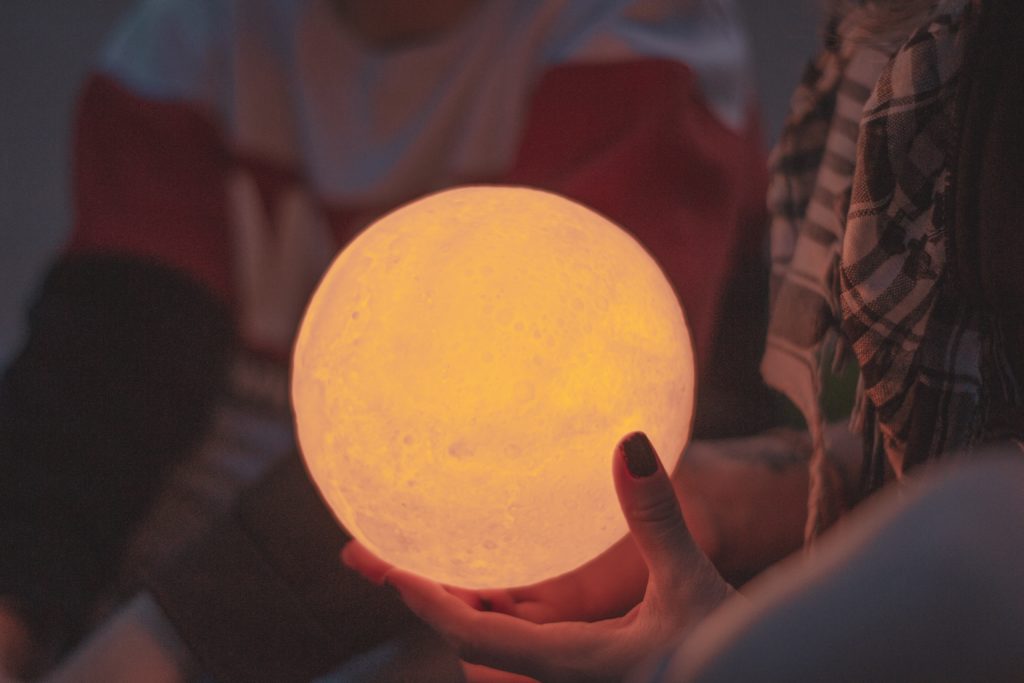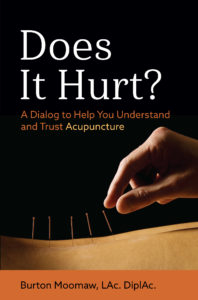
My wife’s and my struggle with infertility was the experience that led me to become an acupuncturist. After the birth of our first son where early labor was an issue beginning at week 34 of pregnancy, we experienced the wrenching loss of a baby with a miscarriage. Then we had difficulty conceiving again and consulted an endocrinologist specializing in fertility. Simultaneously my wife began working with an acupuncturist and after several months of treatment became pregnant before intervention from the endocrinologist. This doctor immediately dashed our hope pronouncing that the pregnancy would never hold. Our acupuncturist was not so dismissive. With her support and treatments, along with a lot of rest on the part of my wife, our pregnancy continued to full term and our second son Noah was born.
I recently had a conversation with a cardiologist in my community. She was excited to hear that I was an acupuncturist and related the following, “I worked in New York City for 20 years and was amazed when I moved to Boone that the hospital didn’t have a list of acupuncturists to give to patients. In New York we doctors knew that if a patient had a struggle with infertility or smoking, acupuncture was the most effective treatment.” I was impressed by her openness to acupuncture and the recognition in some modern-medicine communities that acupuncture is effective.
Acupuncture is in fact very effective in helping infertile couples conceive. In my practice I’ve helped regulate women’s menstrual cycles, eliminate painful periods and increase fertility in both men and women.
Acupuncture is effective at helping with infertility because it treats the whole person—body, mind, and spirit. As described in my book, Does It Hurt? A Dialogue to Help you Understand and Trust Acupuncture, Chinese medicine’s organizational models for diagnosis are in-depth and search for underlying causes of health problems, not just symptomatic relief.
Infertility is Most Often a Functional Problem
Due to many possible factors the functional ability of a couple to create a new life can become hindered. Functional problems mean that no disease is present in the body, but instead a specific function is not working right—a function like fertility, hormone production, or digestion. Functional issues do not always have a measurable value in blood that indicate the cause of the problem. Many factors can contribute to dysfunction including emotional struggles, nutritional deficits, and exhaustion. The organizational models of Chinese medicine take these and many other factors into consideration to create a unique, individualized treatment plan for each patient.
Problems of dysfunction do not develop overnight but evolve over time. Therefore it can take time and patience for acupuncture treatments to devolve these issues back to a state of health. Acupuncture is not magic, but is a process of treatment which slowly encourages the body back to normal function.
One of the most difficult things I see infertile couples come to terms with is the calling out of their bodies to change their lifestyle in order to conceive. “If you keep doing the same thing you’ve always done, you’ll keep getting the same thing you always gotten.” Continuing to live a stressful and overly-busy life often contributes to infertility in both men and women. Being constantly tired and pushing ever onward depletes the resources of energy, fluids, and blood necessary to supply the functional process of creating a healthy, loving environment for a newly fertilized egg. When a man is stressed and working too hard, even in the presence of normal sperm counts and motility, there can be no energetic spark left to fuel the start of a new life. When a woman is exhausted from being a wife, mother, cook, laundry maid, and professional woman, the huge resources necessary to start and sustain a new life are hard to come by.
It is interesting that in Chinese medicine the most important energetic pulse taken at the wrist to assess fertility is the lung pulse. It indicates if the patient is receptive to a new spirit coming into their life. I find that it is difficult for a couple to have this receptivity when they are pushed to their max each day by the demands of two jobs and constancy of action.
Fertility in Nature
Looking at other animals in nature is valuable when formulating a strategy for cultivating fertility. The nesting instinct is present in both birds and other animals. They build a nest beforehand, get the work out of the way, then hunker down so that when the time comes to be fertile and pregnant they slow down and are not overly taxed. Most animals work only enough to provide food for themselves each day and do not stay up late under artificial light or push themselves to work overtime. Many couples never rest, before, during or after pregnancy, or they start to slow down a week or so before delivery.
Fertility also varies with the environment’s ability to provide nutritional support. In times of feast fertility increases, in times of famine it declines. In black bears for example the development of a fertilized egg can cease for months until the female has gained sufficient weight to support fetal development. If food is scarce and no weight is added, egg implantation does not proceed. Our diets need to be rich in fat to provide the epigenetic message that “there is plenty of food now, it is a great time to reproduce.” Weight gain too may be just the message needed to trigger fertility.
How Does Acupuncture Increase Fertility?
There are three ways that acupuncture treats infertility:
- Using the Luo channels, acupuncture helps mitigate stress. These channels have a very soothing effect on emotions and can help create a sense of calm in life.
- Using the Eight Extraordinary channels, acupuncture helps create the right environment for proper function in the entire reproductive system which includes the timing of steps for endometrial proliferation, ovulation, fertilization, tubal migration, and implantation. These things are seen in modern medicine as being regulated by hormones.
- Using the primary channels, acupuncture helps the body produce and distribute more nutritional energy to the reproductive tract to supply every tissue involved in the steps of conception with nutrient-rich resources. .
It is common for issues of infertility to be unexplained by modern medicine—problems like repeated miscarriages and the inability to conceive when there is normal ovulation and sperm counts, normal hormonal levels, and no mechanical problems. Chinese medicine looks past the material realm of measurable quantities and addresses energy. (For more on the concepts of energy refer to chapter 4 of my book Does It Hurt? A Dialog to help you Understand and Trust Acupuncture). Energy, in the various forms described by Chinese medicine, provides the operating system that directs all form and function. Energy controls cyclical aspects of our function, it leads blood around the body to every cell to provide nutrition, and it directs our immune system which plays a role controlling various functions. This is why acupuncture is so effective at helping with a wide range of health issues including infertility.
 You will find more in-depth descriptions of these theories in my introductory book on acupuncture,
You will find more in-depth descriptions of these theories in my introductory book on acupuncture,
Does It Hurt? A Dialog to Help You Understand and Trust Acupuncture




Comments are closed.